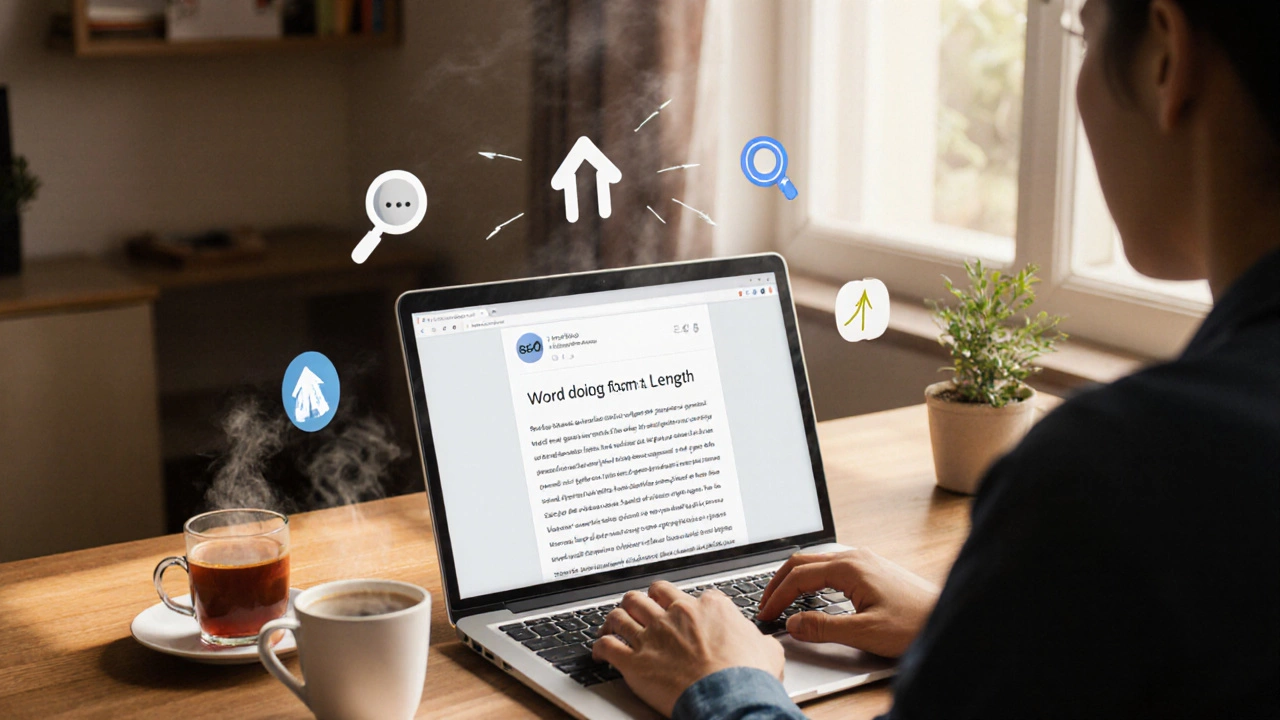SEO Blog Length: How Long Should Your Posts Really Be?
When working with SEO blog length, the ideal word count that helps your article rank higher while keeping readers engaged, you quickly realize it’s more than just a number. It intertwines with blog word count, the total number of words you publish, readability score, a metric that measures how easy your text is to understand and keyword density, the proportion of target terms within the copy. Together they shape the user experience, guide search engine crawlers, and ultimately affect the traffic potential of a post.
Search engines treat SEO blog length as a signal of comprehensiveness. A longer, well‑structured article often covers a topic from multiple angles, which tells Google that the page satisfies diverse user intents. In practice, "SEO blog length encompasses comprehensive coverage" – if you miss key subtopics, even a 3,000‑word piece can feel thin. Balancing depth with relevance is the key; every paragraph should answer a specific question rather than adding fluff.
Readability plays a pivotal role because users decide within seconds whether to keep scrolling. A high readability score, indicates short sentences, simple words and clear headings keeps dwell time up, which indirectly boosts rankings. "Readability score requires appropriate sentence length" – break up dense blocks, use bullet points, and keep paragraphs under 150 words. When readability aligns with the chosen blog word count, readers stay longer and search bots can parse the content more efficiently.
Keyword density is often misunderstood. It’s not about stuffing a term at any cost; it’s about natural placement that reinforces the topic. "Keyword density influences SEO blog length" because longer articles give you room to use primary and related terms without over‑optimization. A safe range sits between 0.8% and 1.2% for the main keyword, while synonyms can appear more often. When you track density alongside word count, you avoid the trap of thin content that tries to hit a numeric target.
Competitive analysis shows that top‑ranking posts in most niches hover between 1,500 and 2,500 words for evergreen topics, while news updates often stay under 1,000 words. This pattern reflects user expectations: in‑depth guides deserve space, breaking news needs speed. "Blog word count dictates content depth" – if you aim to outrank a 2,200‑word pillar, plan for at least 2,500‑plus words, but only if you can add genuine value.
Longer posts also give you more opportunities for internal linking, image optimization, and multimedia embeds. Each element can improve page load time, which is another ranking factor. However, avoid bloating the article with unrelated media; each addition should support the core argument. When you align media with the target traffic potential, users find the page useful and share it, sending positive signals back to search engines.
Measuring success goes beyond word count. Look at bounce rate, average session duration, and scroll depth. If a 1,800‑word article has a high bounce rate, reconsider its structure, headings, or the relevance of the introduction. "SEO blog length influences user engagement metrics" – fine‑tune the length until you see a steady rise in dwell time and lower bounce percentages.
Practical steps to pick the right length: start by researching the top 5 results for your keyword, note their word counts, and set a baseline a few hundred words higher. Draft an outline with at least three sub‑headings that answer distinct user questions. Write until every heading is fully answered, then trim any repetitive sentences. For evergreen guides aim for 2,000‑2,500 words, for product reviews 1,200‑1,500, and for quick updates 600‑900.
Now that you understand how SEO blog length connects to word count, readability, keyword density and traffic potential, you’re ready to apply these insights. Below you’ll find a curated set of articles that dive deeper into each aspect, offering real‑world examples, tools, and step‑by‑step tactics to help you master the perfect post length for your niche.
About
Blogging Tips
